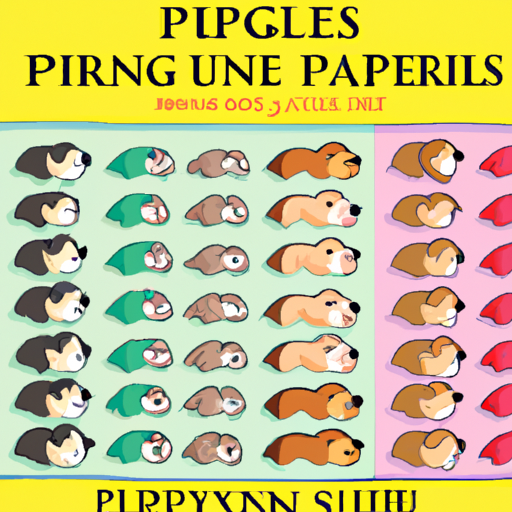As a caregiver to a new puppy, you’re probably wondering about its sleep patterns. You ask yourself, “How much should a puppy sleep?” and “How can I set up a nap schedule?” Don’t worry, you’re not alone, and we’re here to help.
Understanding Puppy Sleep Needs
Just like human babies, puppies need a lot of sleep to support their fast-paced growth and development. They can sleep 18 to 20 hours a day, depending on their age, activity level, and overall health.
- Newborns (0-3 Weeks): Newborn puppies spend nearly all their time asleep. They usually sleep in short bursts of 30-45 minutes, waking up only for feeding.
- Infants (3-12 Weeks): Puppies in this age group still need a lot of sleep, approximately 15-20 hours a day. They’re likely to be more active when awake but will still sleep in 1-2 hour intervals.
- Adolescents (12 Weeks to 6 Months): Adolescent puppies will sleep around 12-15 hours a day. As they become more active and inquisitive, their sleep may become more consolidated but still fragmented.
- Adults (6 Months and Older): Adult dogs usually sleep around 12-14 hours a day. By this age, most dogs have established a consistent sleep pattern.
Setting Up a Puppy Nap Schedule
Setting up a nap schedule for your puppy can help them adjust to their new home and establish good habits. Here’s a basic guideline:
- Morning Wake Up and Playtime: Wake your puppy up at the same time each morning. Engage in a short play session to burn off energy.
- Breakfast and Potty Break: Feed your puppy and take them outside for a potty break.
- Morning Nap: Allow your puppy to take a nap. For a young puppy, this could be as short as 30 minutes to an hour.
- Lunch and Potty Break: After their nap, feed your puppy and take them outside again.
- Afternoon Nap: Another nap will help your puppy recharge for the rest of the day.
- Dinner and Potty Break: Feed your puppy their last meal of the day and take them outside once more.
- Evening Playtime and Bedtime: Allow your puppy to play and burn off some energy before settling down for the night.
Creating an Ideal Sleep Environment
Creating an ideal sleep environment for your puppy is essential. Here are some tips:
- Keep the sleeping area quiet and dark.
- Provide a comfortable bed or crate.
- Maintain a consistent temperature.
- Limit distractions.
Dealing with Sleep Problems
If your puppy is having trouble sleeping, there might be an underlying issue. Common problems include separation anxiety, teething, and illness. If you notice any changes in your puppy’s sleep pattern, consult with a vet.
Understanding Sleep Disturbances
Just like humans, puppies can have sleep disturbances. These could be due to nightmares, sleepwalking, or even sleep barking. If these disturbances become frequent, it’s best to consult with a vet.
The Importance of Consistency
Consistency is key when it comes to a puppy nap schedule. Stick to the same wake-up times, meal times, and nap times every day. This will help your puppy understand what to expect and will aid in their overall behavior and training.
FAQs
Why does my puppy sleep so much?
Puppies need a lot of sleep to support their rapid growth and development. A puppy can sleep anywhere from 15 to 20 hours a day, depending on their age.
What if my puppy doesn’t want to sleep?
If your puppy doesn’t want to sleep, try creating a quiet, dark environment and sticking to a consistent schedule. If sleep problems persist, consult with a vet.
Can a puppy sleep too much?
While puppies need a lot of sleep, excessive sleep can sometimes be a sign of illness. If you’re concerned about your puppy’s sleep habits, it’s best to consult with a vet.
Should I let my puppy nap whenever they want to?
While it’s important to let your puppy get plenty of sleep, it’s also beneficial to have a consistent nap schedule. This can help establish good habits and routines.
Remember, every puppy is unique and may not follow these guidelines exactly. They are, after all, just like us – individuals with their own needs and habits. So, observe your puppy, learn from them, and adjust the schedule as needed.



